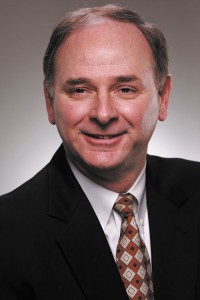
Reporter Newspapers asked local banker Chris Burnett a few questions about how he sees the future of community banks. Here are his answers.
Q. At a time banks seem to be growing bigger and spreading their branches across the region and country, what is the role of the smaller community bank? How do you compete with the big banks?
A. In large markets like metro Atlanta, community banks find it difficult to compete with the mega-banks on pricing and locations. Community banks must be specialists in specific niche markets and must provide a level of professional, personal service that is far superior to the big banks.
Examples of niche markets include small business lending services like SBA-guaranteed loans and working capital, and asset-based lending services. Other niches can include wealth management, trust and mortgage services.
On the deposit side, new technology like remote capture deposit machines (RDCs) allow smaller banks to compete with the big banks because we can now install machines at our clients’ offices that enable them to make deposits right at their desks, eliminating the need to physically go to a branch to transact business. This saves our clients time and money, and places us on a more level playing field with the big banks that have large branch networks.
Q. What do you see as the primary market for community banks?
A. In smaller towns throughout Georgia and the nation, local banks will continue to be vital members of their communities because many of the big banks do not want to operate branches in smaller communities because these branches do not offer the profit opportunities that the big cities offer.
The shareholders and employees of community banks typically live and work right in their own towns. They are the business and civic leaders in their communities and they have a personal, vested interest in seeing their towns succeed.
But in bigger markets like metro Atlanta, it is difficult for community banks to be all things to all people. So, we must pick our niches and do them extremely well.
Q. How do you see the Perimeter business/financial market today and over the next few years?
A. I am very optimistic about the long-term health of the Perimeter business market, which I believe is the epicenter of business for the Atlanta region. With over 30-million-square-feet of office space, we are home to a number of national companies, and we must continue our pursuit of professional office users to fill our available buildings. We also have some of the finest medical facilities in the Southeast, and we need to continue expanding our health care services by attracting more medical providers to the Perimeter market.
I am also impressed with the quality of leadership within our city governments, our chambers of commerce and our civic associations. The future is very bright for the Perimeter market. And, a bright future for this market means a bright future for the banks that serve it.
